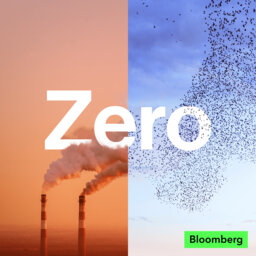Three US Governors, Republican and Democrat, pitch green spending
Policy can make or break climate action. Usually, national policy gets the most attention, but what local and regional governments do can make a bigger difference, especially in large countries like the US, India and China. This week, Akshat Rathi speaks with three US governors – Jay Inslee of Washington, Michelle Lujan Grisham of New Mexico, and Eric Holcomb of Indiana – about how they navigate partisan politics and the need for climate action. As governors who control state budgets and priorities, their decisions now could supercharge national climate action, or hinder it.
More on the topic:
- How solar is becoming the midwest’s new cash crop
- Podcast: How wildfire smoke and air pollution impacts your health
- Zero’s episode with Leah Stokes about working on the IRA with Gov. Jay Inslee
- Crash Course: Conservatives vs. EGS with Saijel Kishan
- A transcript of this episode
Zero is a production of Bloomberg Green. Our producer is Oscar Boyd and our senior producer is Christine Driscoll. Special thanks to Brian Eckhouse, Aaron Clark, Jen Dlouhy, Gilda Di Carli and Kira Bindrim. Thoughts or suggestions? Email us at zeropod@bloomberg.net. For more coverage of climate change and solutions, visit bloomberg.com/green
In 1 playlist(s)
Zero
Zero is about the tactics and technologies taking us to a world of zero emissions. Each week Bloombe…Social links
Follow podcast
Recent clips

Do artists have a duty to be political? Imagine series
32:37

Electricity is now holding back growth across the global economy
39:13

George Saunders goes inside the mind of a climate denier: Imagine series
43:22
 Zero
Zero